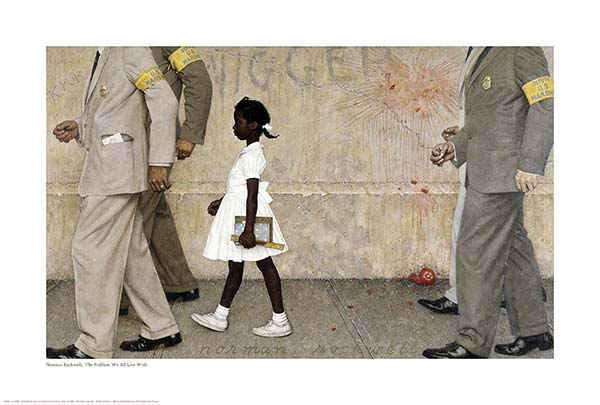Goshen College in Indiana has banned playing “The Star-Spangled Banner” at sports events, including as a purely instrumental piece, because they think it is too violent. And naturally, rightie bloggers are righteously indignant about it. In a blog post filed under “liberals,” Robert Stacy McCain writes,
If Goshen College wishes to be even less significant than they already are, they’ve chosen a perfect path to obscurity. . . . It is pathetic that brave men died so that twerps like Goshen College’s president could have the freedom to repudiate their courageous sacrifice.
You see, in RightieWorld, the individual freedoms that brave men died for are just abstractions. You’re not supposed to exercise those rights if a majority of Americans do not approve. We are all supposed to think only conservatively correct thoughts and hold conservatively correct opinions, or else we are enemies of freedom.
For the record, I happen to love the “SSB.” Like “Battle Hymn of the Republic,” the SSB is an anthem that grew organically out of U.S. history — a poem written by an eyewitness to a historical event sung to the tune of a popular drinking song. I can imagine what Francis Scott Key must have felt when he saw the flag flying over Fort McHenry in the dawn’s early light. If you can imagine being in Key’s place that day, the words “our flag was still there” ought to give you chills.
And it’s a plus for me that the whole thing is easily within my vocal range, including the high Gs at “glare” and “free” (when singing in C major; in the more common A flat major it’s only an F flat). I own that high G. At public events I sing the SSB very loudly and pity the poor mortals who have to switch to a lower octave.
Anyway, the catch to this story is that Goshen is a Mennonite college. I don’t think you can rightfully categorize the Mennonites as “liberals,” their commitment to nonviolence notwithstanding. My impression is they are pretty durn conservative about most things.
But it does show how warped our political definitions have become, that pacifism is supposed to be a litmus test for liberalism. Historically, American liberals have been no more likely to be pacifists than anyone else. Theodore Roosevelt was, IMO, one of the patriarchs of modern American liberalism, and he was no pacifist. Franklin Roosevelt, Harry Truman, John F. Kennedy and Lyndon Johnson were all presidents who were identified as, or called themselves, “liberals,” and none of them was a pacifist.
Even at the height of opposition to the Vietnam War, I doubt the majority of protesters were pacifists. It was that war we objected to, not war in general.
NBC:
Art professor John Blosser told The Goshen News that there is much national pride at the school, but that most people aren’t going to blindly accept what the country does.
That is genuine patriotism. Knee-jerk “my country right or wrong” sentiment is not patriotism but jingoism.
NBC Sports’ Rick Chandler weighed in, saying: “I suppose we could have followed the example of the Mennonites and simply fled, giving the nation back to the British. But then we’d all be playing cricket.”
I realize it is paradoxical to say that brave men died so that Mennonites have the freedom to oppose brave men dying, but that is in fact what they did. To try to ridicule or bully the Mennonites into compliance with social norms on the grounds of “patriotism” — or even more Orwellian, “liberty” — is a betrayal of the sacrifice so many brave men made.
The Mennonites can refuse to conduct ritual playings of a song about a war if they want to, just as Jehovah’s Witnesses (and me) can refuse to say the Pledge of Allegiance out loud, and not be punished for it. This is what political liberty is.
It would be a disaster for me if the national anthem were switched from the SSB to (as many propose) “America the Beautiful,” and not just because the melody is less interesting and it’s hardly ever sung in a key that lets me show off. “God shed his grace on thee” doesn’t work for me, and I suspect the nation’s atheists have similar opinions.
Give me “o’er the land of the FREEEEEEE [trumpet flourish] and the home of the brave!” any day.



